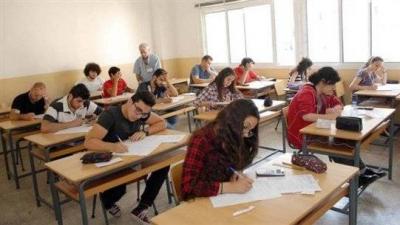September is just two weeks away, bringing with it the obligations of both the state and its citizens. While numerous files await resolution—from the delineation file to necessary legislation, reforms, and the presidential elections—most Lebanese, particularly those in Beqaa, are preoccupied with the concerns of schools, fees, provisions, and heating. Under the burden of various crises faced by citizens, and amidst fears for their children's futures due to the potential loss of a school year or the need to secure winter necessities, citizens find themselves victims of an uncertain future, at least for the coming months. The state is incapable of making any decisions that could instill a sense of reassurance in the public, and it struggles with the challenges of the pending obligations. The people's concerns have grown larger than they can bear, and because "everyone's worry is proportional to their capability," the state operates outside of citizens' needs and rights, focusing on its own problems while citizens seek a glimmer of hope to address their issues, even temporarily.
Since the onset of the COVID-19 pandemic in 2020 and the forced closure of schools in February of that year, followed by a shift to remote learning amidst significant difficulties—including a lack of resources like internet and electricity—last year's rising fuel costs and challenges in registration and school admission have culminated in what appears to be the toughest school year yet compared to the previous three. The increases in fees across various private schools have, at a minimum, tripled, making it impossible for many to cope, particularly for employees in the public and private sectors, as well as self-employed individuals who live day-to-day. Consequently, parents are troubled over how to secure school fees, registration costs, books, supplies, and more, especially if they have multiple children attending school.
School registration has begun early as private schools opened their doors, signaling the start of registration and announcing their fee increases—half of which are in dollars—after concluding celebrations for their successful students in official examinations. Parents transitioned from a phase of joy and success to one of planning and managing their affairs for the upcoming school year. However, since happiness is not complete, many parents have started withdrawing their children from private schools and turning toward public education, which remains less costly despite needing transport fees.
While private schools justify their fee increases—some of which were acceptable and others exorbitant—to cover the wages of teachers and operational costs like heating, the citizen is left bewildered, as education has become exclusive to a specific class, leaving the poor unable to keep up with inflation, which has affected all production and vital sectors.
Parents have begun registering their children in public schools, where costs are lower despite transportation expenses. The books provided by public education come at no charge, and tuition fees are nearly free, making them considerably less than those of private education. This shift will likely create significant pressure on public schools and secondary institutions this year in terms of student enrollment. Can they accommodate these high numbers?
Educational sources have indicated to "Nidaa al-Watan" that "the surge towards public education after the increase in fees is justified, and public schools can accommodate the numbers contrary to the claims of incapacity. However, the most critical concern today is the fate of the academic year, which seems to be in jeopardy, as strikes are still ongoing, and the Secondary Education Syndicate has informed the minister of its members' absence this year. Public school teachers are part of the public sector workforce that has refrained from attending work for weeks." They added, "The problem now extends to the Lebanese University, which students from the secondary certificate pursue, and it seems that the demands from its teachers remain unmet, thus casting a bleak outlook on the public education sector and the academic year as a whole."
Sources confirmed, "Private education insists on starting the academic year early to deliver as much of the curriculum as possible before the winter arrives, when heating costs are expected to be very high this year. However, it ignores that the curriculum and official exams are linked to the guidance and advice from the ministry based on what has been delivered in public education. Additionally, private schools seek to collect as many fees as possible in the initial phase to cover their needs, especially the semi-free institutions that aim to establish legislation legitimizing the fee increases determined by the state, with the latter covering part of these. If legislation is not passed, the increases may be justified in the budgets submitted by the schools as part of their operational costs."
Given that the future and the coming days are unpredictable, especially in Lebanon—where people go to bed with one reality and wake up to another—coupled with reports of soaring dollar rates expected in September, schools have left the door open for further fee increases, leaving citizens vulnerable to ongoing crises and concerns.




